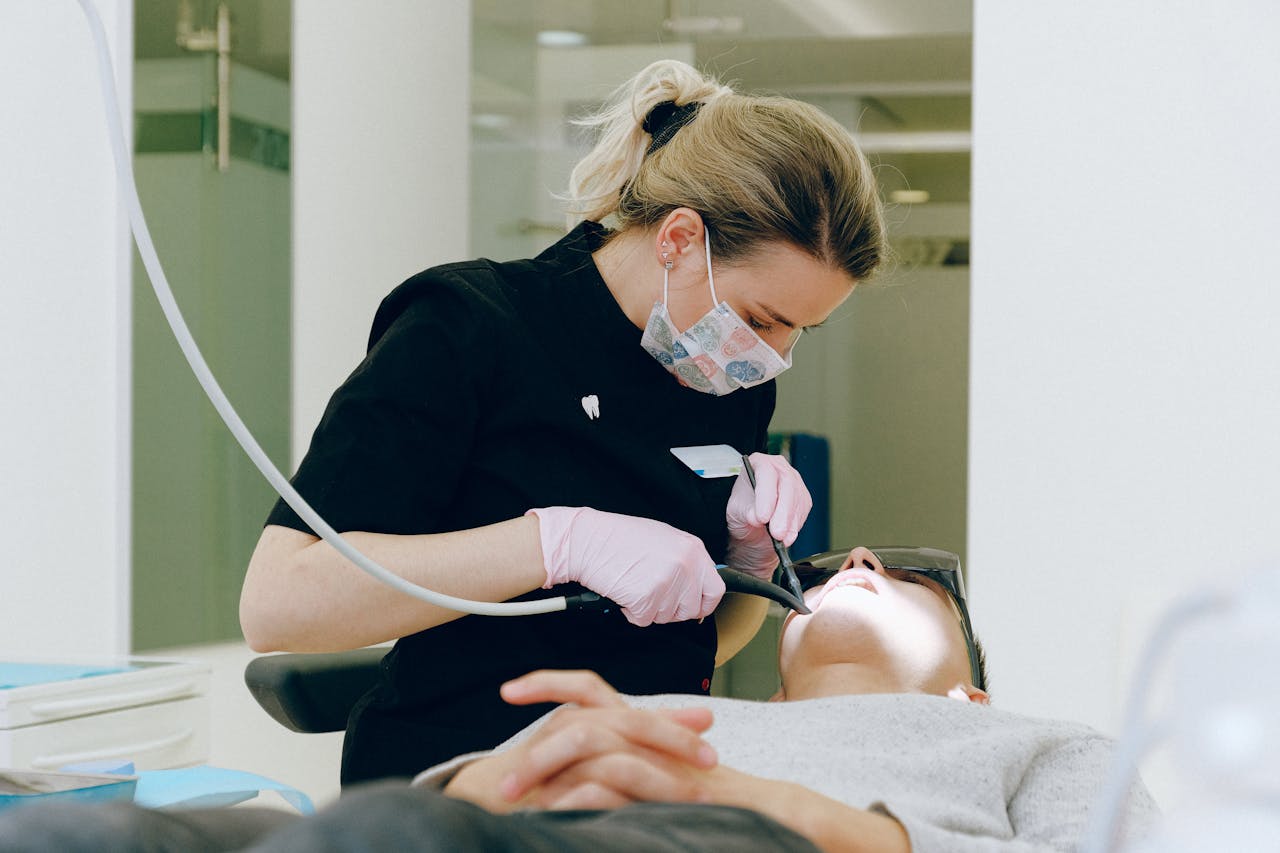Resources for dental hygienists
The dental hygiene field provides numerous opportunities for career advancement. You can achieve career growth and development by expanding your skill set, pursuing continuing education opportunities, networking with other professionals, and engaging in professional development activities.
Feb 4, 2025
Traditional Career Paths in Dental Hygiene
Building a career in dental hygiene starts with education and getting licensed. With more experience, you can start considering different paths.
Education and Licensure
Aspiring dental hygienists need to complete an accredited dental hygiene program, which typically results in an associate degree and takes about two to three years. These programs offer a combination of classroom instruction and hands-on clinical experience, equipping students with the skills and knowledge needed for success.
After graduation, candidates must pass the National Board Dental Hygiene Examination, which tests their understanding of dental hygiene principles, as well as a clinical examination that evaluates their practical skills.
Once you’ve passed these exams, you can apply for your state license and begin practicing as a dental hygienist. To keep your skills up to date and maintain your license, you need to invest in continuing education.
Entry-Level Clinical Practice
Once licensed, most dental hygienists begin their careers in entry-level clinical roles at private dental practices or Dental Support Organizations (DSOs). In these positions, you'll primarily focus on preventive care, such as cleaning teeth, removing plaque and tartar, and applying fluoride treatments.
You'll also have the opportunity to conduct oral health assessments and educate patients on proper hygiene practices. Building strong relationships with patients is also important, as it helps them feel comfortable and confident in your care.
Continuing Education and Advancement
To progress beyond entry-level positions, many dental hygienists decide to further their education. One popular path is earning a bachelor's degree through completion programs, which can open doors to advanced roles in public health, research, or even dental hygiene education.
This additional education allows hygienists to specialize in areas like pediatric care or periodontics, broadening their career options. Pursuing these advanced opportunities can lead to higher salaries and more leadership responsibilities within dental teams.
Advanced Clinical and Specialized Roles
As dental hygienists gain experience, they have the opportunity to move into more advanced clinical roles, potentially specializing in fields like pediatric or periodontal hygiene. Specialized certifications in areas such as laser therapy, sedation, or orthodontics can further enhance your expertise and make these career advancements possible.
Higher Education and Non-Clinical Opportunities
For dental hygienists looking to advance their careers, earning a master's degree can open up exciting new opportunities. With a master's degree, you could transition into roles such as a dental hygiene educator, where you can teach and inspire the next generation of professionals.
You might also pursue a program director position, overseeing dental hygiene programs at educational institutions, or explore opportunities in corporate settings and public health.
Alternative Career Opportunities
Exploring non-traditional career paths can lead to exciting opportunities where you can use your existing skills in new and creative ways. Here are some nontraditional paths you can consider:
Corporate Sector: Dental hygienists can transition into corporate roles, such as pharmaceutical and dental supplies sales, dental office management, or onboarding specialist roles at digital dental staffing platforms.
Education: There are great opportunities to become a classroom instructor, program director, or clinical instructor, where you can help shape the next generation of dental professionals.
Public Health and Community Programs: Careers in public health give dental hygienists the chance to work as dental public health officers or community clinic administrators.
Research and Innovation: Dental hygienists can contribute to developing new oral health technologies by working on projects with universities, government agencies, or the private sector.
Entrepreneurship: Starting your own business, offering consulting services, or getting into professional speaking and writing gives you the freedom to bring fresh ideas to the dental industry.
Networking and Mentorship
As you move forward in your career, networking and mentorship are important for your growth, helping you build valuable relationships and providing helpful guidance along the way.
Building Professional Relationships
Building professional relationships plays a significant role in advancing your career. Platforms like LinkedIn offer great opportunities to connect with peers, mentors, and other professionals in the field.
You can also make new industry connections by contributing as a guest author to dental blogs.
Volunteering and Community Involvement
Volunteering and community involvement offer wonderful opportunities for both personal and professional growth. Participating in local health events, offering free dental care, or supporting dental outreach programs allows you to gain hands-on experience while making a positive impact.
These activities help you develop new skills, whether it’s in patient care, leadership, or communication. You also get the chance to network with other professionals, patients, and community members, which can open doors to new opportunities.
Find Flexible Hygiene Opportunities with Teero
As a dental hygienist, your job no longer has to be tied to one practice. With apps like Teero, you can easily find dental practices in your area that need temporary dental hygienists and start creating your own schedule.
Working in a variety of offices will strengthen your resume and also allow you to network with a variety of dental professionals, which will give your career a big boost. Download the app to get started today.
